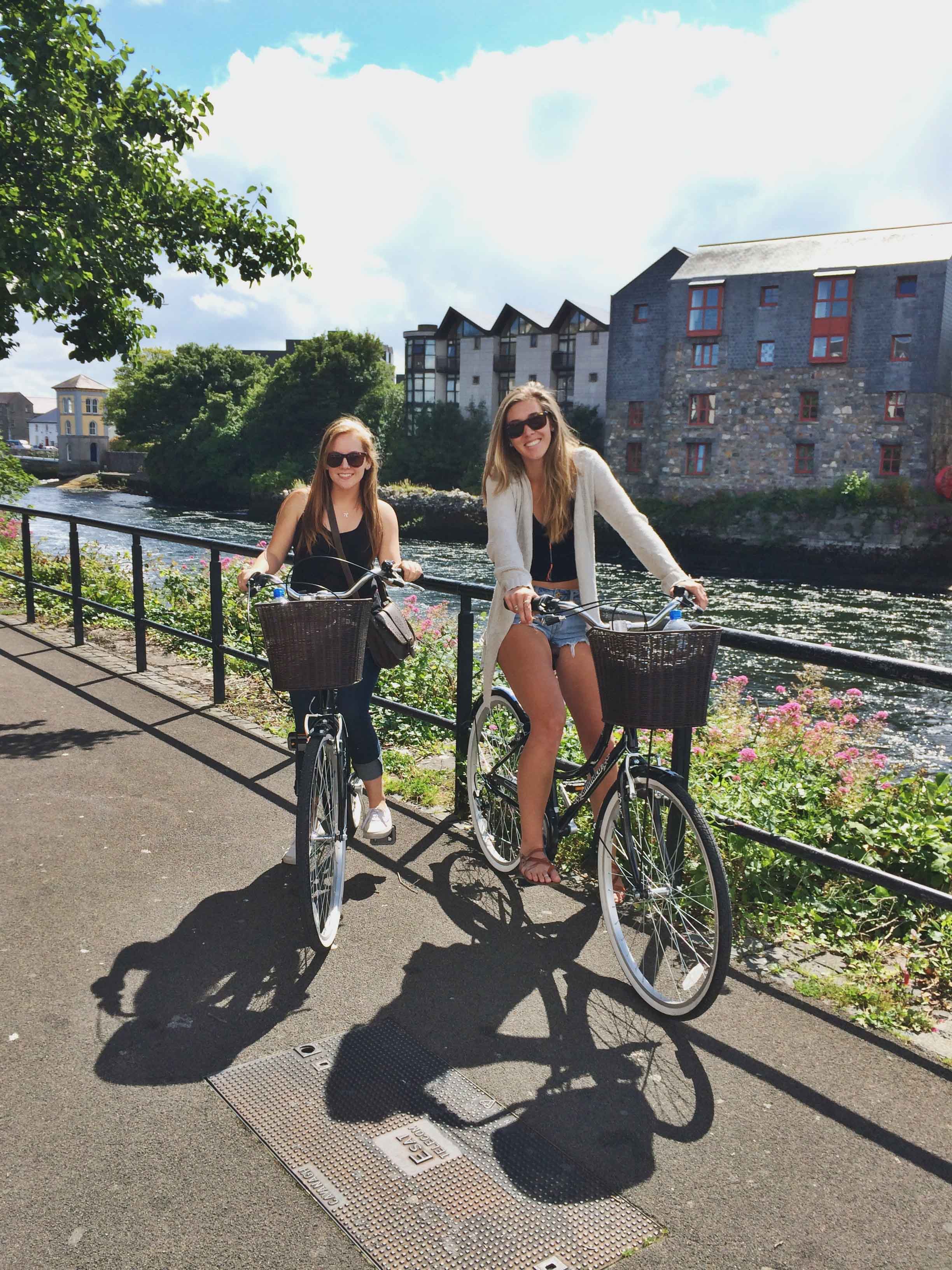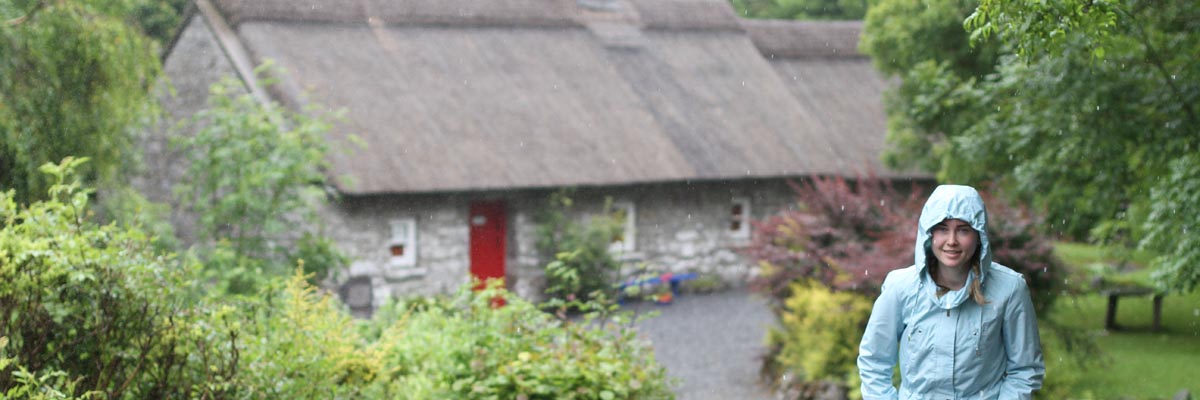Program highlights for Galway, Ireland
Language spoken:
English
Currency:
Euro (EUR, €)
Climate:
Marine West Coast
City type:
Small city (Population 100,000-50,001)
Program type:
Specialty
Host university:
University of Galway
Language instruction:
English
Terms offered:
Summer
Program capacity:
50 students
Credit type:
U.S. semester credit
- Live in a vibrant, cosmopolitan city with a thriving student culture.
- Enjoy Galway’s lively summer festival season, including the Galway Film Fleadh, Ireland’s most prestigious film festival, and the Galway Arts Festival, one of the most vibrant celebrations of music, theatre, and arts in Europe.
- Explore Dublin, one of the cultural capitals of Europe, before traveling as a group to Galway.
- Join in field trips to the ancient Aran Islands and the rugged mountain landscapes of Connemara.
- Trace your Irish roots through a genealogy course.
- The USAC Resident Director and staff are present onsite full-time to welcome and support you during your term abroad.
Why Study in Galway?
 The summer Galway program is ideal for students interested in learning about Irish studies in a lively, student-oriented city on Ireland’s west coast. Galway's magical combination of ancient history and contemporary culture makes it a great location for Irish studies.
The summer Galway program is ideal for students interested in learning about Irish studies in a lively, student-oriented city on Ireland’s west coast. Galway's magical combination of ancient history and contemporary culture makes it a great location for Irish studies.
The Galway program consists of one 5-week summer session offering academic coursework in literature, history, music, theatre, and Gaelic language taught by established Irish and U.S. scholars. Many of these courses include enticing field trips and excursions offering hands-on experience with the subject matter, such as walking tours of Galway, outings to the Connemara Gaeltacht (Gaelic-speaking area), live theatre performances, guest lectures by leading playwrights and directors, private Irish film screenings, and private in-class music concerts by leading traditional musicians and singers.
Participation in additional program tours and field trips also form an integral part of the program. Those with Irish roots can enroll in a 1-credit course to trace their family’s genealogy. Past students have even connected with local Irish relatives from their research in this course, and two students even discovered they were related, dating back to the 1600s.

